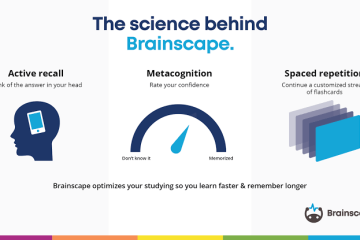Mathematics is often viewed as a challenging subject by many students, but its importance in daily life cannot be overstated. Early math education plays a critical role in shaping children’s cognitive development and their future academic success. This article explores the numerous benefits of introducing math concepts to children at an early age, and how parents and educators can effectively nurture a love for Math for Children in young learners.
Cognitive Development and Problem-Solving Skills
One of the most significant benefits of early math education is its impact on cognitive development. Engaging young children with math activities helps to enhance their critical thinking and problem-solving skills. These skills are not only crucial for academic success but also for everyday life. Math encourages children to think logically and methodically, breaking down complex problems into manageable parts.
Research has shown that children who are exposed to math concepts early on develop better memory and attention span. Activities such as counting objects, recognizing patterns, and solving simple puzzles stimulate brain development and foster a deeper understanding of how things work. This foundation is essential for more advanced mathematical concepts they will encounter in later grades.
Building a Strong Foundation for Future Learning
Early math education sets the stage for future academic achievements. A solid understanding of basic math concepts is crucial for learning more advanced topics in higher grades. Children who are proficient in early math are more likely to excel in subjects such as science, technology, engineering, and mathematics (STEM) later in their academic journey.
Furthermore, early exposure to math helps children develop a positive attitude towards the subject. When children are confident in their math skills, they are more likely to approach challenging problems with a growth mindset, believing that effort and practice can lead to improvement. This positive attitude can significantly impact their overall academic performance and enthusiasm for learning.
Enhancing Language and Communication Skills
Interestingly, early math education also contributes to the development of language and communication skills. Math activities often require children to describe their thought processes, explain their reasoning, and collaborate with peers. This verbal interaction enhances their vocabulary and ability to articulate complex ideas clearly.
For example, when children engage in activities like sorting objects by size or shape, they learn descriptive words such as “bigger,” “smaller,” “longer,” and “shorter.” These interactions help them understand and use comparative language, which is an essential component of effective communication.
Promoting a Growth Mindset
Introducing math concepts to children at an early age helps to instill a growth mindset. A growth mindset is the belief that abilities and intelligence can be developed through dedication and hard work. When children encounter challenges in math, they learn the value of perseverance and resilience. They understand that mistakes are part of the learning process and that effort leads to improvement.
Educators and parents can foster a growth mindset by praising children for their effort and encouraging them to tackle challenging problems. By focusing on the process rather than the outcome, children learn to embrace challenges and view failures as opportunities for growth.
Encouraging Curiosity and Exploration
Math is inherently connected to the world around us, and early math education encourages children to explore their environment with curiosity. Children naturally engage with math concepts through play and everyday activities. For instance, building blocks can introduce concepts of geometry and spatial awareness, while cooking can teach measurements and fractions.
Parents and educators can harness this natural curiosity by providing opportunities for hands-on learning. Simple activities like counting steps, measuring ingredients for a recipe, or identifying shapes in the environment can make math fun and relatable. By integrating math into daily routines, children learn to see the relevance of math in their lives.
Strengthening Parent-Child Relationships
Early math education also provides an excellent opportunity for strengthening parent-child relationships. Engaging in math activities together creates quality bonding time and allows parents to actively participate in their child’s learning journey. Parents can model a positive attitude towards math, which can significantly influence their child’s perception of the subject.
Parents can incorporate math into everyday interactions, such as counting objects during a walk, sorting laundry by color or size, or playing math-related games. These activities not only make math enjoyable but also reinforce the idea that learning can happen anywhere and anytime.
Practical Tips for Parents and Educators
To maximize the benefits of early math education, parents and educators can implement the following strategies:
- Make Math Fun and Engaging: Use games, puzzles, and interactive activities to make math enjoyable. Incorporate storytelling and songs that involve counting or patterns.
- Use Real-Life Examples: Relate math concepts to real-life situations. For example, use shopping trips to teach addition and subtraction or cooking to explain measurements and fractions.
- Encourage Exploration and Curiosity: Provide opportunities for hands-on learning. Allow children to experiment with building blocks, sorting objects, and measuring items.
- Praise Effort and Persistence: Focus on the process rather than the outcome. Praise children for their effort and encourage them to tackle challenging problems with a positive attitude.
- Create a Math-Friendly Environment: Surround children with math-related materials such as books, toys, and games. Create a space where they can explore math concepts freely.
- Collaborate with Educators: Work closely with teachers to reinforce math concepts at home. Share observations and strategies to support your child’s learning.
- Be a Positive Role Model: Demonstrate a positive attitude towards math. Show enthusiasm and curiosity, and share your own experiences of learning and using math.
Conclusion
Early math education is a powerful tool that shapes children’s cognitive development, problem-solving skills, and future academic success. By introducing math concepts at a young age, parents and educators can foster a love for learning, instill a growth mindset, and prepare children for the challenges ahead. Through engaging activities, real-life examples, and a supportive environment, children can develop a strong foundation in math that will benefit them throughout their lives.
Embracing the benefits of early math education ensures that children are equipped with the skills and confidence to excel in a rapidly changing world. As we nurture their curiosity and exploration, we lay the groundwork for a generation of critical thinkers and lifelong learners.



